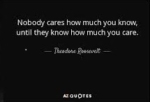At a news conference in British Columbia the other day, provincial health officer Dr. Bonnie Henry showed why she has become one of the strongest and most trustworthy voices in healthcare.
When we communicate through media interviews or in presentations the main goal is to encourage people to do something – it isn’t just to get our message across.
Dr. Henry’s message was to encourage people “to put some distance between us to keep our germs to ourselves,” as COVID-19 spreads. Two new cases are residents of the Lynn Valley Care Centre which is now under an outbreak protocol restricting visitors and introducing measures to ensure staff and residents are safer.

BC Provincial Health Officer Dr. Bonnie Henry
As she spoke about the science of health safety, she was willing to share that this is personally impacting for her; that she has had previous experiences with outbreaks like SARS and Ebola.
The care she showed in those moments was raw and real. In an instant she was so much more than the doctor who knew best… she was the doctor who cares so much it hurts. I know many do.

In an increasingly skeptical culture, authenticity is now the most important component of any presentation you give. It allows your audience to trust you and gives your content a significantly higher level of value.
It’s also a strong way to make your content more memorable.
Deep within your brain is a key component called the hippocampus which is part of the limbic system. It plays an important role in the consolidation of information from short-term memory to long-term memory. The limbic system is the part of your brain in charge of your emotional life. In short, your memory is inextricably linked to your emotions.
Presentation tricks for being more authentic
Ok the sub-header above was just a test to see if you were following along. There are no tricks to being more authentic – obviously. What you can do is follow these steps:
1. Care about your audience. Do research before your interview or presentation and understand what they are expecting or need to hear from you before you decide what it is you want to share with them.
2. Be your real self. By all means, practice your presentation and get better at delivery. But don’t distract your energies away from being yourself. One example is, I often come across clients who ask us to help them become better presenters by removing all their verbal fillers (umms, uhhs, like so’s…). That’s fine, verbal fillers can be distracting to your audience. But if the mental effort to remove them is taxing or it’s making you appear less authentic then you are a less effective speaker. Better to focus on being real, than being smooth.
3. Share stories of failure. Think these through ahead of time but sharing a failure or a weakness, even if you haven’t completely figured out the solution yet, is very powerful.
4. Practice. Yes it takes practise and good coaching to be authentic (which is a paradox). Practise connecting, not transmitting. Don’t practice in front of a mirror, practice with an audio or video recorder and if you can, hire a private coach to work with you, someone who is committed helping you become more of yourself, not some embodiment of what a presenter in your position is supposed to look like.
Dr. Henry didn’t intend to deliver an emotional message at her news conference, it was clearly spontaneous. It was real, it was powerful, and it was memorable.